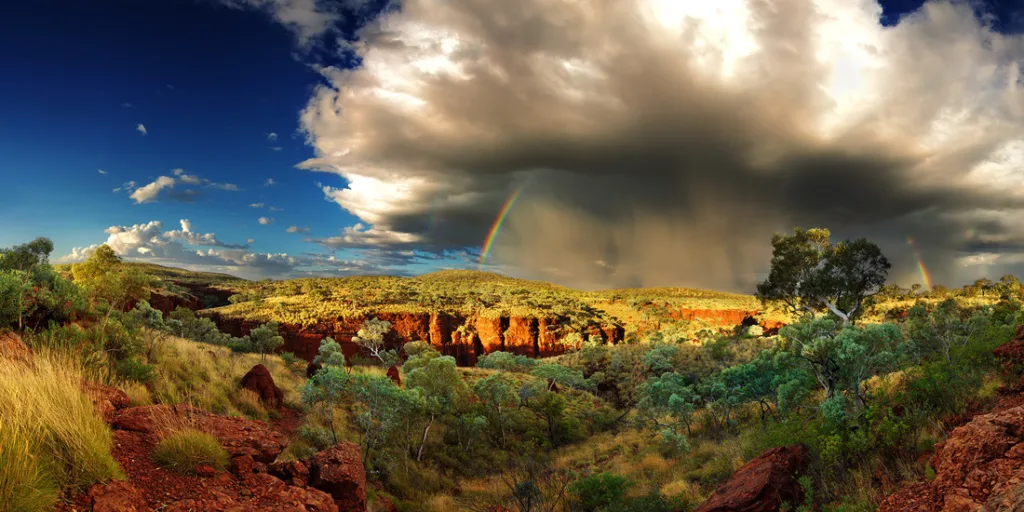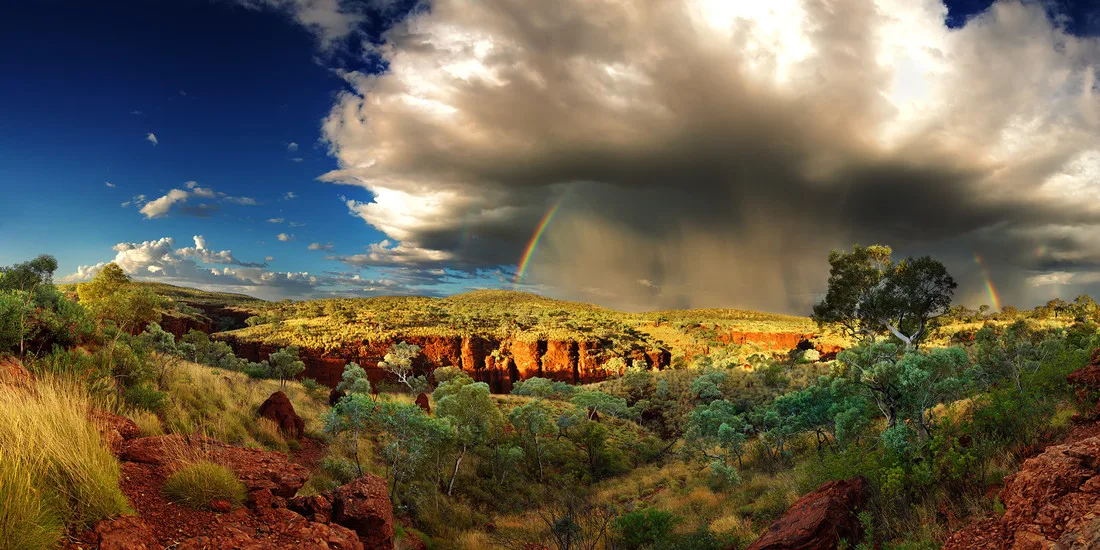With its kangaroos, koalas, and kookaburras, Australia is a biodiversity hotspot. We’re one of just 17 ‘megadiverse’ countries on the planet, with many of our species found nowhere else on Earth. How lucky are we!
But for all our natural gifts and wonder, we’re facing a crisis down under.
Australia leads the world in mammal extinctions. We are the only developed country on the global list of deforestation hotspots. And 19 Australian ecosystems are showing signs of collapse.

Australia is a land of natural beauty and wonder. But nature is in crisis. Image: Pilbara storm
Australia leads the world in mammal extinctions
Nearly 34 native mammal species have been lost since European settlement. Iconic animals like the Tasmanian Tiger and the Lesser Bilby are now a thing of history books, and many more are on the brink of extinction. Even koalas – one of our most loved species – could become extinct in New South Wales by 2050.
But it’s not just mammals in trouble. Nearly 100 species – including birds, reptiles and plants – have vanished since Europeans arrived.
Today, more than 2000 native plants, animals and ecosystems are at risk of extinction.
How did we get here?
Land clearing for agriculture, urban development, and mining has decimated the natural habitats of many of our beloved species, leaving them with nowhere to go. Invasive species like foxes and feral cats prey on native wildlife, further exacerbating their decline. Climate change adds another layer of stress, altering habitats and food availability, making it harder for species to survive.
Australia: a global deforestation hotspot
We are the only developed country on the global list of deforestation hotspots, with 40% of our forests destroyed since European settlement. This is a national tragedy, given how unique and diverse Australia’s forests and woodlands are. Yet, we continue to clear vast tracts of land at an alarming rate.
Deforestation not only drives species extinction but also leads to water cycle disruption, soil degradation, and increased greenhouse gas emissions as we lose our natural carbon sinks.
First Nations people suffer from loss of culture as national landscapes are destroyed.
Ecosystem collapse
People and wildlife rely on healthy nature and ecosystems to thrive. But right now, 19 Australian ecosystems are showing signs of collapse, including coastal mangroves, native forests, and woodlands.
Coastal mangroves protect our shorelines from erosion and provide critical breeding grounds for fish and birds. Native forests support a diverse range of wildlife and filter the air we breathe. Woodlands are home to many of our unique plant and animal species and play a vital role in maintaining the health of our soils. The collapse of these ecosystems would have far-reaching consequences, not only for wildlife but for human well-being and future generations.

Australia is one of the most biodiverse places on Earth. It’s also the only developed country on the global list of deforestation hotspots. Image: Green Tree Python in Cape York Peninsula
A funding crisis?
As the health of Australia’s nature declines at an alarming rate, scientists and policy experts are urging the government to increase spending on nature protection.
Currently, just 0.1% of the federal budget goes to protecting nature. It’s not nearly enough – and it’s showing.
If the federal government spent just 1% on nature – that’s a ten-fold increase – it would be transformational.
Australia has the people, the skills and the science to solve the environmental problems we face. We have great programs already in place or ready to go that just needs more resourcing.
It would mean a future where we still hear the Aussie birdsong, where we maintain our way of life, and where iconic animals like koalas and platypus are bouncing back in numbers.
That’s why we’re calling on the Australian government to invest 1% of the budget for nature. Sign the petition to Environment Minister Plibersek today.

